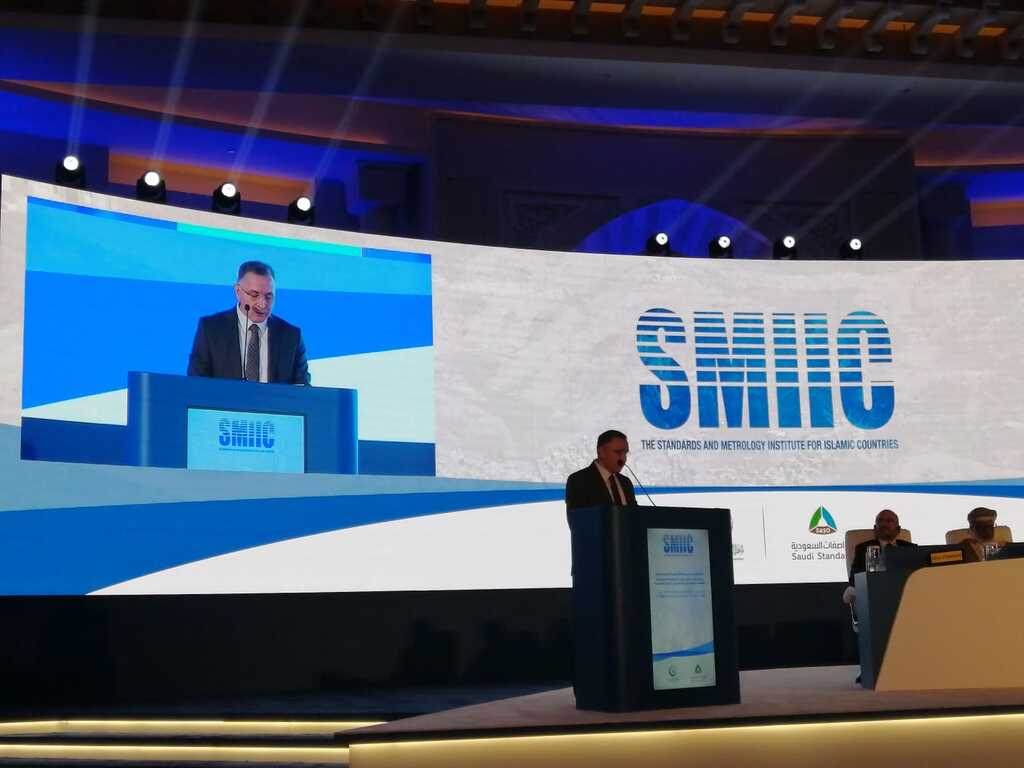By Victor Juna, www.businessdailyafrica.com
Ongoing expansion of the Muslim segment of Kenya’s newly rich is rapidly changing the face of business in the country in favour of Sharia-compliant offers that are taking root across all segments of the consumer market.
This year alone, the Kenyan capital Nairobi has seen huge investments in Halal products targeting the Muslim population whose growing numbers and economic power was confirmed only this year with the release of the census results.
It all started a few years ago with the emergence of restaurants offering Halal foods — which meant mainly avoiding pork and alcohol and sourcing meat from animals slaughtered in accordance with the Islamic principles.
But this wave of compliance with Islamic principles has rapidly spread into the financial services sector which now boasts of Islamic banking, bonds, and most recently insurance.
The consumer market has rapidly followed suit with the introduction of cosmetics, real estate deals, hotel and travel services that are Sharia compliant.
The Government of Kenya has not been left behind as Central Bank of Kenya is on course to floating Sharia – compliant bonds for infrastructure projects with an eye on rich investors in the Middle East.
Kenya’s 4.3 million Muslim population, whose numbers have more than doubled in the past two decades and are richer than ever before is being seen as the reason for main driver of the attention business is paying to their interests.
It has also helped that Kenya has become the natural destination of choice for thousands of rich Somali Muslims fleeing two decades of war in their country.
Sharia law bars financial services providers from earning or charging interest and instead offers a return to savers by sharing profits from ethical businesses that do not include alcohol, tobacco and gambling.
“There is a huge market for halal products and services,” said Dr Hassan Anandwa, a scholar at the Thika College for Sharia law and Islamic Studies.
“We have seen growth from the food segment and the nascent financial services to new areas like hotel and accommodation. Halal hotels in Nairobi and parts of Mombasa are now popular with Muslim faithful.”
Dr Anandwa added that Halal products are moving to the mainstream and appealing to non-muslim consumers looking for high quality ethical products, especially food and banking products.
In Kenya, the Halal economy is dominated by the food market — but financial services that comply with Islamic law and the teachings of the Koran are gaining prominence.
Barclays Bank was the first financial institution to test the market with a sharia-compliant product in December 2005 and since then Islamic financial products have exploded on to the market with at least eight commercial banks including KCB tapping into this market.
Two Islamic driven banks with roots in the Middle East — Gulf African and First Community — opened shop in 2008 and have since moved to the profit zone illustrating the vibrancy of the Halal economy in the country.
“We are now seeing money from Arabs based in Mombasa and Somalis from Eastleigh spreading to the across most urban centres,” said Ahmed Bulle, a senior associate at Deloitte.
Now, the players are moving to sharia compliant insurance products known in Islamic parlance as Takaful.
Under the model, people seeking insurance cover pay contributions to a collective fund from which payments will be made to members who suffer from the risks covered.
But unlike conventional insurance practice, any residual cash after all payments have been made in the financial year is paid out to members as profit based on the ratio of contributions.
First Community Bank launched the product last week and Gulf Bank says its would launch similar products within six months as it plots to set a fully fledged investment banking subsidiary with a focus on PE activity and mergers and acquisitions.
The investment banking division seeks to hunt for deals in Kenya as investors in the Middle East increasingly look at the East Africa region as the next frontier for growth.
Though insurance penetration has remained under three per cent over the years, analysts project a rosy outlook for takaful, implying a pent-up demand for Islamic financial services.
Morgan Stanley, a global financial services firm, says in a research note that takaful premiums could potentially reach Sh20 billion in 2014, or 31 per cent of total insurance premiums last year.
Already, other insurance players such as Jubilee and APA insurance mulling products that will help them get a share of the Sh20 billion.
Analysts say that there is a potential market for halal equities at the stock market where companies deriving income from non-interest investments can trade their shares using a separate index.
Stepped up activity
Players in the food market are not been left behind as they have stepped up their activity in the halal market.
For instance, meat firm Farmer’s Choice has just commissioned a Sh320 million slaughterhouse in collaboration with several partners.
The facility is expected to process halal meat products from 700 to 800 bulls per week.
“We will completely segregate products coming from the new facility from others that produce haram meat,” said Mr Stanley Mbugua, the operations director at Farmer’s Choice.
He added the firm has invested into the facility in a bid to meet growing demand from the local market.
“Halal meat is sought after by Muslims who want compliance to their faith while Christians also buy but on the basis of their quality that is ensured by good processing practices,” he said.
Alpha Fine Foods and Kenchic are other food suppliers that have tapped into the halal market.
Halal food, however, is being routinely served at some of Kenya’s big hotels without the public’s knowledge, executives in the sector say, as the hospitality industry seeks to appeal to both Muslims and non-muslims.
Multinational food giant Nestlé has gone halal as it cashes in on a surge in demand for food and products acceptable to devout Muslims.
“The Nestlé Kenya Ltd factory is halal certified, and all products manufactured in this factory are halal,” said Brinda Chiniah, the spokesperson of Nestle’s Nairobi office.
Nestlé is now offering halal versions of well-known products right across its range of food and beverages, including confectionery such as Milo, Nescafe, Maggi soups, Nido and Cerelac.
Other than the food and travel industries that are working to tap into Kenya’s Muslim population cosmetics, telecoms, hotel and travel are slowly begun to stake a claim of the Halal market
“The halal consciousness is fast growing beyond food and finance,” said Mr Bulle.
The cosmetics including perfumes, body oil and lipsticks made in strict accordance with Islamic law, using plant extracts and minerals instead of alcohol and animal products, are also finding the way in the Kenyan market.
Brisk growth
Already, the Western and Middle East markets are recording brisk growth sharia compliant cosmetics.
“We do not have special cosmetic categories designed specifically for the Islamic buyers. However, most of our products do not contain alcoholic ingredients and this has enabled us to sell such products among the Islamic populated regions,” says Harry Njagi, Oriflame’s regional sales and marketing director.
The mobile phone industry has also started focusing on Muslim consumers, with the introduction of a number of applications, including religious calendars and Koran downloads.
Nokia, Safaricom, and Zain have developed applications and value added services like Quran verses, songs, and prayers that are downloaded at a price from their online portals or via a text request.
Marketers say the Muslim consumer is easier to target and offers a growth opportunity to companies.
“The conventional market is fragmented. Though the halal market is relatively smaller, it is more consolidated and ready to take up Sharia-compliant goods and services,” said Mr Maina Kirugo, a marketing analyst at Apexx Marketing.
Halal travel is also emerging on the radar of investors as affluent Muslim travellers show a bias to travel to destinations and staying in places that accommodate their needs, which are within the boundaries of their religious beliefs.
Already, properties have been proposed in Maasai Mara and the Kenyan Coast that comply with Islamic law, which require a hotel to be free of alcohol, discos and TV channels showing movies unsuitable for families.
In addition, food and drinks must be halal.



